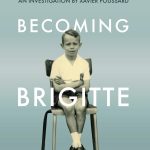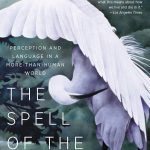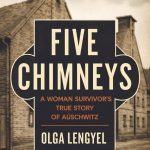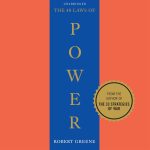
Customers say
Customers find the book informative and well-researched. They describe it as an excellent, helpful read that is worth their time. The writing quality is praised as clear and easy to understand. Readers find the book engaging and fulfilling, providing an eye-opening reflection on human nature.
Make It Yours – See Your Price On Amazon!
Your Sales Price $19.99 - $12.99
A quick rundown of this product’s key features:
The Pulitzer Prize-winning history of the Scopes Trial and the battle over evolution and creation in America’s schools
In the summer of 1925, the sleepy hamlet of Dayton, Tennessee, became the setting for one of the twentieth century’s most contentious courtroom dramas, pitting William Jennings Bryan and the anti-Darwinists against a teacher named John Scopes, represented by Clarence Darrow and the ACLU, in a famous debate over science, religion, and their place in public education. That trial marked the start of a battle that continues to this day-in cities and states throughout the country.
Edward Larson’s classic Summer for the Gods — winner of the Pulitzer Prize in History — is the single most authoritative account of this pivotal event. An afterword assesses the state of the battle between creationism and evolution, and points the way to how it might potentially be resolved.
Our Top Reviews
Reviewer: T. Graczewski
Rating: 5.0 out of 5 stars
Title: Monkey Business
Review: Historical dramas “Argo” and “Lincoln” dominated the Academy Awards this year. I’m not sure that is a good thing, although I very much enjoyed those fantastic movies. It seems to me that there is an inherent danger in allowing the theater to tell history, as artistic license is sure to modify the storyline for dramatic effect, a fact that will almost certainly be lost on the viewing audience. The wildly popular mid-twentieth century play and film “Inherit the Wind” based on the 1925 Scopes trial – “the most widely publicized misdemeanor case in American history…” – is an excellent case in point.Thanks to the Spencer Tracy and Gene Kelly classic, I had a vague familiarity with the infamous “Monkey Trial,” an event that pitted (so I was led to believe) closed- and simple-minded obscurantist Christian fundamentalists against sympathetic, open-minded progressives in a decisive battle over religious freedom in America, a clash in which the latter triumphed clearly and completely. Edward Larson demonstrates in this brilliant 1998 Pultizer Prize-winning piece that the truth of the trial is far different, far more subtle and profound, than the story the entertainment industry delivered for popular consumption half-a-century ago.To begin with, the trial began (and ended) mainly as a cheap publicity stunt orchestrated by a few leading out-of-towners in the sleepy east Tennessee hamlet of Dayton. The defendant, local high school biology teacher John Scopes, was approached about volunteering to challenge the new anti-evolution legislation in response to an open offer of support from the recently established ACLU in far away New York City. Scopes readily agreed, seeing the trial as a fun summertime lark, while other town citizens saw dollar signs associated with hosting a high profile, controversial trial. The actual issue at hand – the teaching of Darwin’s theory of evolution in public schools – was of limited matter to the main participants. This is a far cry from the scene depicted in “Inherit the Wind,” where the Scopes character is dragged out of the classroom and thrown into jail, a howling town mob supposedly looming around him, threatening to lynch him for his blasphemous lectures.Larson also puts the views of William Jennings Bryan – the lead celebrity prosecutor, known to many liberals and Christian conservatives alike as “The Commoner” and “The Peerless Leader” – into fuller relief and perspective. The author shows that his opposition to teaching Darwin in public schools and the fundamental question he wanted addressed in the trial are far deeper than a simple literal interpretation of Genesis. First, Bryan and many leading anti-evolutionists believed that Darwinism had a pernicious effect on society, not only undermining traditional Christian beliefs, but also positively degrading the moral fiber of the nation. One of the great turn-of-the-century liberals, Bryan championed women’s right to vote, unionized labor, and various anti-colonial, anti-war causes. He opposed the teaching of evolution because of the mentality and behavior he believed it promoted. The barbarity of colonialism and the First World War was for him and his supporters a clear and dreadful example of what happens when men and nations live by the laws of Darwin rather than Christ. “The Darwinian theory,” he wrote, “represents man as reaching his present perfection by the operation of the law of hate – the merciless law by which the strong crowd out and kill off the weak.” Darwinism was, in his view, a “cruel doctrine” that robs civilization of pity and mercy. And, he was always quick to point-out, it was still a theory and should not be taught as “fact.”His second point – and the central issue of the trial in his opinion – was the basic and essential question: who decides what is taught in the public schools? “The real issue,” he noted, “is not what can be taught in public schools, but who shall control the education system.” He later commented: “The right of the people speaking through the legislature, to control the schools which they create and support is the real issue as I see it.” In other words, if 90% of Tennesseans believed in Creationsim at that time, which they did, and if Darwin’s theories are both deleterious and an unproven hypothesis (obviously highly debatable), why shouldn’t the people of Tennessee be able to at least contain the teachings of evolution in the schools that that they fund? That is, teach Genesis along side Darwin, while noting that evolution is a theory.I live in Northern California. My friends and neighbors are universally progressive. I’ve introduced this topic in casual conversation (I like to talk about the books that I am reading) and have sought to challenge knee-jerk reactions. I like to present this hypothetical case: In 1996 Harvard authors Richard J. Herrnstein and Charles Murray whipped up a firestorm of controversy with their study “Bell Curve: Intelligence and Class Structure in American Life,” that argued (and I’m simplifying here, so don’t tear me apart in the comments) that Asians are, on average, naturally more intelligent as measured by IQ than Caucasians, who are, again on average, more intelligent than Blacks and Hispanics. Many, quite naturally, found these findings repugnant and rejected them out-of-hand no matter the rigor of the research methodology. Now imagine if the state of California decided to teach this racial IQ theory in high school biology class, citing the overwhelming scientific and statistical evidence to support it. What would you do? Bryan’s basic argument was “that the majority should oversee content of public school instruction, at least with the respect to the teaching of `unproven’ theories that profoundly influenced social and spiritual values.” If this statement concerned the example above, would you disagree?Let’s move from the prosecution to the defense. “Inherit the Wind” portrays Darrow as the hero, a great lawyer and an even greater humanist, who, in the final act, after defending Bryan and his right to maintain his “fool religion,” thoughtfully weighs the Bible and “The Origin of Species” in his hands and, after some deep contemplation, thrusts them both into his briefcase. In reality, Larson writes, Darrow’s participation dramatically upset the ACLU’s entire plans for the trial and, if anything, undermined the position of the defense. “Neither Scopes in particular nor free speech in general mattered much to Darrow,” Larson writes, “and this troubled many within the ACLU leadership.” If Bryan saw recent history as the danger of Darwinian competition, the ACLU was troubled by the threats on civil liberties introduced during the First World War and by the Red Scare of the early 1920s. The Scopes trial offered them an opportunity to strike an early blow in defense of individual freedom. But once Darrow volunteered to participate in the trial – an offer the publicity-seeking folks in Dayton couldn’t possibly refuse given Darrow’s national reputation as the most controversial and celebrated defense lawyer in the land, like OJ Simpson’s legendary defense team all wrapped into one – he dictated the theme and tempo of the trial; the ACLU lost all control over “their” trial. The ACLU wanted to win an important case for academic freedom; the pugnacious and stridently atheist Darrow wanted to publically eviscerate the hated Bryan and his Christian faith. Worse still, for many Americans at the time Darrow embodied the awful end-state of a world without Christian charity and principles: a rude, mean-spirited, amoral ogre who most recently saved Leopold and Loeb from the death penalty in Chicago by arguing that they were not responsible for their horrific murder-for-fun of Bobby Franks because they were helplessly swayed by the writings of Nietzsche. In the end, the epic interrogation of Bryan by Darrow on the trial’s final day, which was planned and not extemporaneous as depicted in “Inherit the Wind,” merely exposed “Bryan’s empty head and Darrow’s mean spirit.”In closing, I learned a lot – an embarrassingly lot – from this book. It was a stark and sobering reminder to question popular, cinematic tales. For anyone upon whom “Inherit the Wind” has left a lasting impression, you owe it to yourself to read this book. It is far more than simply a matter of a which type of “fish” – Jesus or Darwin – you have stuck on the back of your car.
Reviewer: Pat Dewees
Rating: 4.0 out of 5 stars
Title: The way it really happened is also a good story
Review: In the 1960 movie “Inherit The Wind”, which has been remade twice, a principled teacher stands up for academic freedom by teaching evolution and is arrested for it in a Bible Belt town that is universally agianst him. But the way the Scopes trial actually played out is not nearly as exciting as the movie. John Scopes is never actually arrested. He didn’t even remember if he had actually taught from the biology book’s chapter on evolution. And both the prosecution and the defense were more motivated by a desire to drum up publicity for an economically struggling town than by evolution/creation principles. And this barely scratches the surface of the differences between the actual trial and the movie.”Summer for the Gods” is basically in three parts: (1) before the trial (2) the trial and (3) after the trial. The first part goes back years before the Scopes trial discussing some of the history of evolutionary thought all the way up to the decisions of the two sides to go to trial.The second part is the story of the pre-trial legal procedures, the trial, and the verdict.The third part is about how the evolution/creation debate has itself evolved. Each side has had to come up with new strategies to counter opposing arguments and the debate continues to this day.People of all faiths who have wandered what the Scopes trial was really like will greatly appreciate this book. My only complaint is that I would have liked more information. For example, if it wouldn’t take up too much room, I would have liked an appendix in the book with the actual text of what people said in the Trial of the Century. And did the townspeople of Dayton, Tennessee react to the trial the same way they did in the movie?Still, the book has a lot of interesting stuff. It tells what actually inspired the Broadway Play the movie is based on, which is interesting. The authors can be proud of the honest approach to the Great Monkey Trial.
Reviewer: a
Rating: 5.0 out of 5 stars
Title:
Review: Fascinating, and of great current applicability.
Reviewer: K. Harbottle
Rating: 5.0 out of 5 stars
Title:
Review: Have just finished this wonderful book. Not only does it give an accurate portrayal of events and the chief protagonists, not only does it debunk the “Inherit the Wind” myths (although fine film in it’s own right as entertainment), but it does it using beautiful prose. This book is a masterpiece. Its depressing that in 2010, a sizeable proportion of Christian American still believe the Bronze Age Genesis myths, and still believe that evolution is only a theory, not fact.
Reviewer: R Helen
Rating: 4.0 out of 5 stars
Title:
Review: This was a surprisingly good book. At first, I wasn’t sure I wanted to finish it. The first half of the book focuses on the history of the theory of evolution and its conflict with Christianity. Larson delves much deeper than the simplistic science vs religion and explains some of the nuances in the debate over evolution and its compatibility with various Protestant denominations. I was getting a little bored, but as soon as he heads into the real story of the trial, the book really picks up. I found it a very fascinating look at probably the most famous and misunderstood trials of the twentieth century in America. Finding out that the whole trial was a set-up and that Scopes wasn’t really put on trial for teaching evolution, but rather volunteered to be the guinea pig, really disappointed me in a way. That the trial was in a way a publicity stunt shocked me. Being older, though, I think I found more complexity in the issues. The themes of evolution vs fundamentalism and the tyranny of the majority over the freedom of the individual are far from the simple right or wrong that popular culture, such as the movie “Inherit the Wind,” seem to portray. I enjoyed that aspect of the book because I love discovering the real story behind famous events. Larson strives to be as impartial as he can be, but it is obvious that his tendency is to sympathize more in favor of the defendant than the prosecution. Understanding Creationism seems to get a bit shortchanged. But it is a fascinating read for any history fan. I would recommend.
Reviewer: wjcroberts
Rating: 5.0 out of 5 stars
Title:
Review: It is an even handed, well written account of a very important trial, the background of which remain contentious and polarised.
Price effective as of Mar 29, 2025 23:50:15 UTC
As an Amazon Associate Dealors may receive a commission for purchases made through these links.









